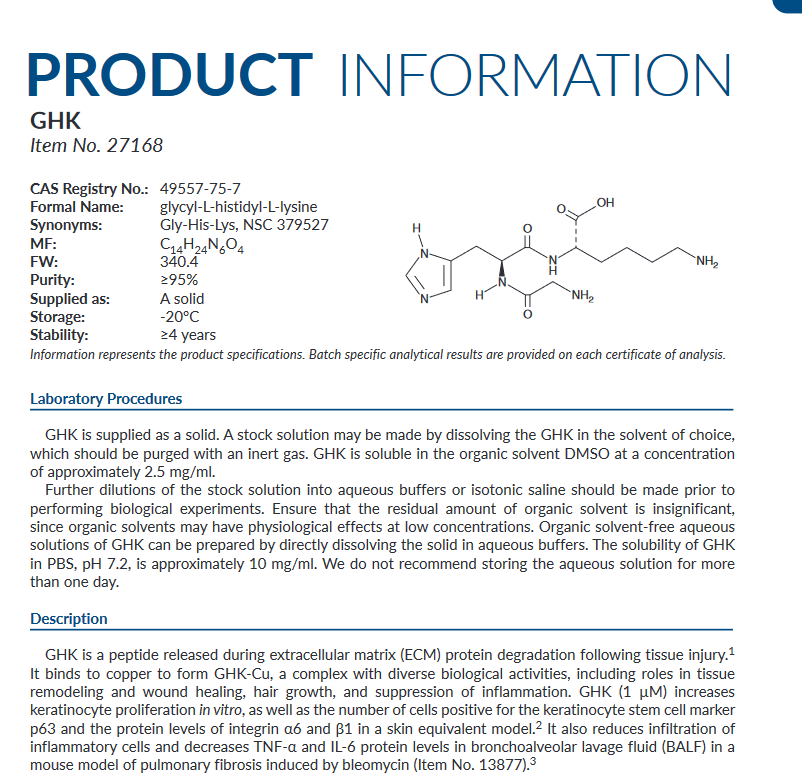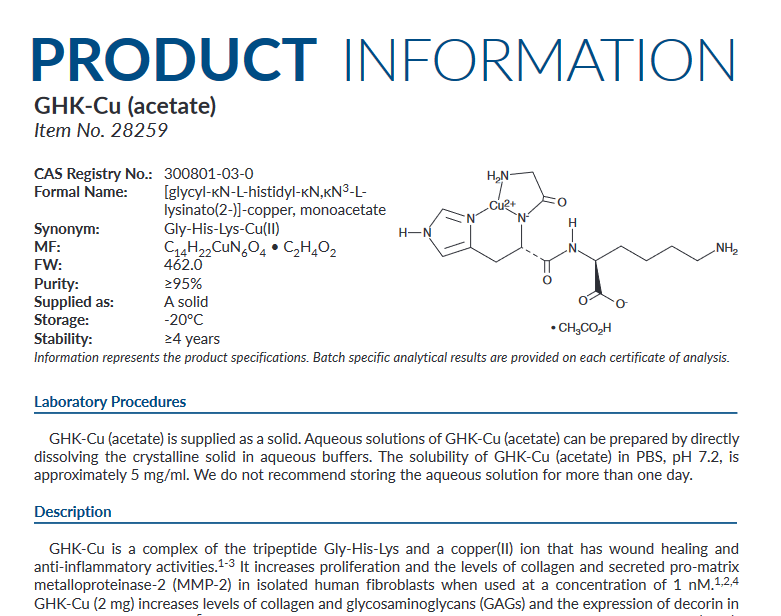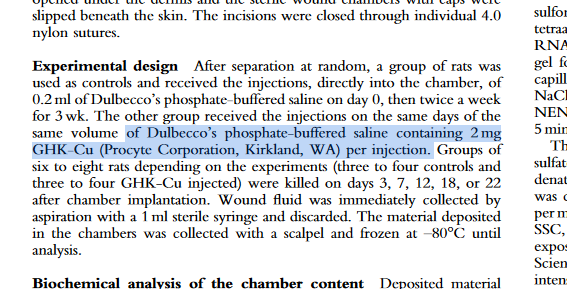NorwoodAscender

just a dude on addy enjoying life
Contributor
- Joined
- Jul 14, 2024
- Posts
- 3,244
- Reputation
- 9,071
ik this is asking alot due to the state of the forum but does anyone know if its possible to dissolve GHK-Cu in DMSO and apply it topically?
would rather do this than take the time of having to pin that shit every single day.
@Dyorotic @NZb6Air @Clavicular
would rather do this than take the time of having to pin that shit every single day.
@Dyorotic @NZb6Air @Clavicular





